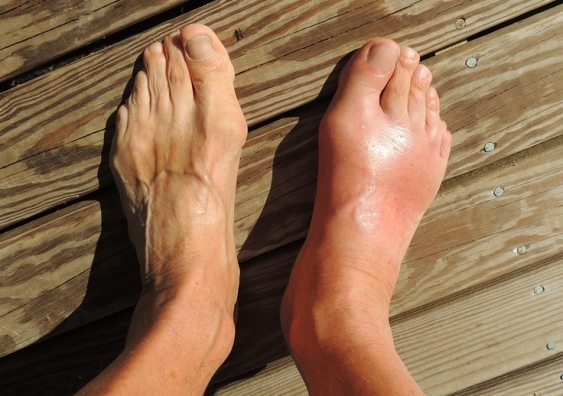Smartphone app could help prevent a gout attack
Sticking to daily medication can be a challenge, but people with gout may soon have an app to help manage their condition and prevent a painful gout attack.
Sticking to daily medication can be a challenge, but people with gout may soon have an app to help manage their condition and prevent a painful gout attack.

Deborah Smith
UNSW Media
9385 7307 or 0478 492 060
deborah.smith@unsw.edu.au
Sticking to daily medication can be a challenge, but people with gout may soon have an app to help manage their condition and prevent a painful gout attack.
A research team led by Professor Ric Day, from UNSW Medicine's St Vincent’s Clinical School, has developed a smartphone application to help people with gout.
Gout is a common inflammatory arthritis that is caused by deposits of uric acid in the joints. Uric acid forms when our cells, DNA, and the food and drinks we consume are broken down. It is normally found in the blood.
In individuals with gout, uric acid is not excreted quickly enough by the kidneys or too much is produced. This excess uric acid can form deposits, or crystals, in the joint and cause recurrent attacks of extreme pain and swelling, and eventually irreversible damage to the joints.
At least 1.5% of the Australian population is affected by gout, and this number is increasing. However, gout can be managed, and an attack prevented.
"We know that if you reduce the elevated level of uric acid – for instance with medication such as allopurinol or febuxostat – then a painful gout attack can be prevented," says Professor Day.
"Our work over the last 30 years has been very much focused on trying to understand gout and developing a therapy. But to make a difference on a large scale, it was time to get our research out in the community.
"That is where the idea of the gout application came in. We are very excited about this app, as it is a new way of helping people with gout. It is a personalised addition to their treatment to help them manage their gout."
The app was designed in collaboration with GPs and people with gout, and has been successfully tested in a pilot study. Its effectiveness will now be tested in a large clinical research study.
"We will evaluate whether the app helps people manage their gout and prevent a painful attack," says Professor Day. "If the app is effective, then we would like to roll it out on a national scale. This could then be a very cost-effective public health intervention to reduce the rate of gout.”
The research team aims to involve about 560 people, who are 18 years or older and who have had at least two gout attacks in the past year, in the gout app study.
"At this stage, we are inviting patients with gout and GPs to participate in our clinical study. So, we would like people to contact us if they would like to participate," said Professor Day.
The UNSW gout app study is part of a National Health & Medical Research Council partnership, supported by the Lexy Davies Trust, AstraZeneca & Menarini, Arthritis Australia, Australian Rheumatology Association, Pharmaceutical Society of Australia and NPS MedicineWise.
The research team led by Professor Day includes researchers from UNSW, the George Institute, University of Wollongong Australia, Western Sydney University, Macquarie University, University of Sydney and University of South Australia.
For more information or to take part in the gout app study, people can call 1800 931 544, email med.gout.app@unsw.edu.au or go to mygoutapp.com.